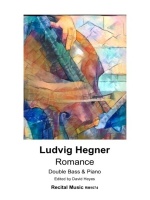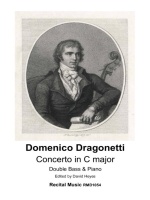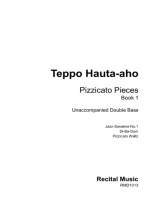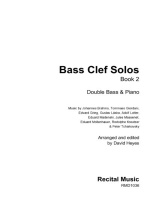Your basket is currently empty!
Fantasia No.2 on themes from Smetana’s Ma Vlast

Description
Fantasia No.2 on themes from Smetana’s Má Vlast was composed in 2024 as a tribute to the Czech composer Bedřich Smetana (1824-1884) in the …bicentenary of his birth. Based on themes from Smetana’s six symphonic poems Má Vlast (My Country), this is a magnificent tour-de-force for the advanced bassist, encompassing glorious melodies and technical challenges alongside a colourful and inventive piano accompaniment which is orchestral in both scope and design. Perfect for any occasion or audience and ideal as the final item in a concert, Fantasia No.2 is a magnificent work or great imagination and breadth. The edition includes piano accompaniments for both solo and orchestral tunings. “One of the forms of musical expression, known since the Baroque era, is a form called the Fantasia. There are many written for the double bass by composers such as Giovanni Bottesini, Gustav Láska and others. After David Heyes commissioned me to write a composition for the Year of Czech Music, this form was chosen, with the idea of using Bedřich Smetana’s cycle of symphonic poems My Homeland as inspiration. The original intention was to quote some of the double bass solos from this piece and adjust the piano accompaniment to them. This turned out to be too one-sided and musically bland. It was much more appropriate to conceive Fantasia No. 2 as a musical mosaic of freely connected motifs and themes from the original symphonic poems. The introduction elaborates the well-known motif of the ancient Prague castle, then come variations of the main idea of the Vltava section, including the Czech polka and the beautiful theme of Šárka singing and the arrival of Ctirad’s fighters. The following magnificent fugue has a Bachian depth and the whole composition culminates in a grandiose conclusion, where the theme of the old Hussite song “Who are God’s warriors” is used. The work as a whole is intended to present the double bass as an instrument capable of expressing itself in the position of so-called serious music, without elements of cheap virtuosity. An important role is played by the piano accompaniment, which often takes over the role of the interpreter of the main melody. It forms the basis for future instrumentation for the symphony orchestra.” [Miloslav Gajdoš]
R.R.P £11.5
Our Price £9.78




